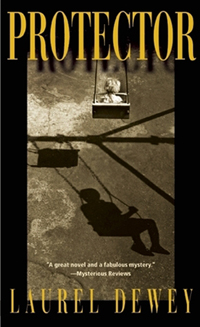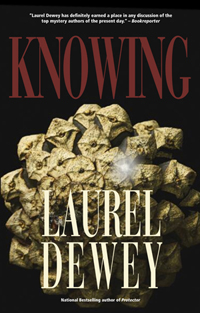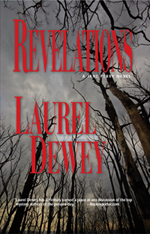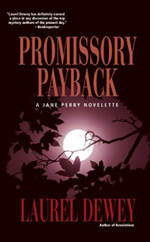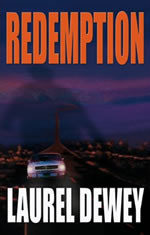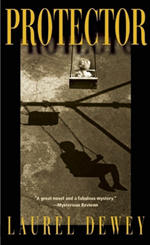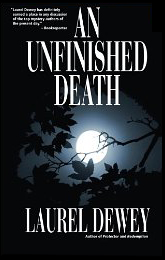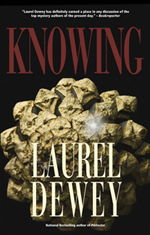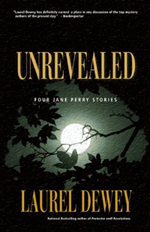
CHAPTER 1
The stars were not particularly bright on that May evening. Emily Lawrence craned her neck as she looked outside her open upstairs bedroom window, hoping she could see a pinpoint glimmer of Pluto in the stark night sky. Unfortunately, the large sycamore tree just outside the window prevented a clear view. Discouraged, she pulled herself back into the house and slid down onto the ever-so-pink carpeting that almost matched her nightgown.
Emily took another look at the star chart that plotted the constellations and diagramed the location of her favorite stellar objects. Satisfied, she flicked off the bedroom light and clicked on the overhead Starlight Starbright projector she received on her ninth birthday, six months before. It was the only gift she wanted and once it was hers, it became her constant companion. She would lie on her bed at night after the house was quiet, her shoulder-length brown hair curled around her pillow, and stare in wonder at the myriad twinkling stars and constellations that projected across her bedroom ceiling and walls. By turning one knob, the constellations slowly moved clockwise around the room, melting into the carpeting and resurfacing on the opposite wall. With the turn of another knob, the room filled with the hushed sounds of soft wind and the distant euphony of Puccini’s Nessun Dorma. She stared transfixed by this celestial ballet, engulfed in its embrace, and felt safe.
Outside, a soft whisper of wind rustled the sycamore leaves. Emily felt herself drifting off to sleep when she was jolted awake by the sound of her mother’s angry voice downstairs. Her body tightened as she tried to ignore the escalating volume. Her parents’ arguments had grown in intensity over the past few weeks. What began as a disagreement in the kitchen would spread into the living room and then the hallway where the nearby staircase led a straight path to Emily’s bedroom door. The only respite Emily had from her parents’ constant discord was a peaceful nine-day camping trip in Moab, Utah with her mother. They’d returned the night before, but it didn’t take long for her parents to resume their loud disputes. However, on this night, the combative sounds from downstairs were the worst ever. The anger in her mother’s voice was now etched with fear. Emily resisted, then gave in and walked toward her bedroom door. She turned the knob, inching the door open.
The upstairs hallway was dark as was the downstairs entry hall near the front door. Emily and her mother’s sleeping bags from their camping trip were still stacked at the bottom of the stairs. The child peeked through the opening of her bedroom door and watched as her mother, Patricia, paced back and forth. Out of Emily’s view, her father, David, sat on the living room couch, his hand cupped tightly against his forehead. His terrified eyes focused intently on the circular patterns of the living room carpeting. Patricia clutched a sheet of notepaper. She looked at it, silently read it and then flared into another tirade.
“Exactly when were you going to tell me about this, David?” Patricia Lawrence screamed at her husband, jerking the paper toward him.
“I...I didn’t know how to tell you,” David responded, his voice shaking.
“Look at me!” She moved her slender body close to David.
David buried his face in both hands. “I’m sorry,” he uttered.
“The hell you’re sorry!” Patricia yelled. “How could you keep this letter from me? Goddamnit, didn’t you think I would eventually find out? All those nights...All those goddamn nights of you calling me and telling me you had to work late...”
“I was working,” David weakly interjected.
“I don’t think they call it ‘work’ after the second or third cocktail!”
David pulled his hands from his flushed face. “Patty, please! We’ve got to talk about this rationally.”
“Rationally? Oh, that’s rich! Suddenly you want to be rational? Why wasn’t that thought going through your head when the relationship became clear? Why didn’t you just walk away?”
“I don’t know—”
“You don’t know?” Patricia’s voice was quickly becoming hysterical. “You know what your problem is? You’re weak! Ever since you were young, you always wanted to play with the big boys, but you never fit in.”
“No. That’s not true,” David responded unconvincingly.
“It is true! You fantasized about what it would feel like to be accepted by people who lived on the edge. You got off on that fantasy. And then, that fantasy became real.”
David covered his face again. “Maybe. Maybe I did.”
“Well, you picked a helluva time to live out your fantasy!” Patricia lunged toward her husband, leaned down and forcefully pulled his hands away from his face. “When the connection was made,” she continued with a slow, angry cadence, “between the two of you and they saw the kind of close relationship you had, did you ever once consider the implications of what could happen? How it would affect us? Or Emily?” At the sound of her name, Emily crawled onto the stairway landing, staying in the darkness so her parents could not see her. Patricia spoke quietly, but there was a penetrating punctuation to each syllable. “The minute you found out what was going on, you should have walked away.”
“I know— ” David replied in a weak voice. “But, I couldn’t.”
“Jesus!” Patricia pulled away from her husband, “How fucked up were you?”
“Oh, shit, Patty!” David’s voice raised several octaves as he nervously got up and walked across the room. “I may have been a little drunk, but I wasn’t fucked up!” David brushed back his thick brown hair with his hand. It was then that he realized his hand was shaking. His eyes fell to the floor and he spoke in a hushed voice, holding back tears. “Things were said and the more we talked, the more the trust began to build between the two of us. And then...I just wanted to help.”
“David, how could you throw everything away that you know is right and true and decent for a relationship that could destroy us?”
“I would never consciously do anything to hurt you or Emily!”
“You don’t think you hurt us when drink a fifth and have to stay in bed all day because you can’t cope? Because you can’t be the man you’re supposed to be?”
“That’s a low blow, Patty.”
“No, David. That’s the truth,” Patricia said tersely.
David searched for the right words. “We’re going to be okay—”
“Are you crazy?” Patricia exploded. “Didn’t you read this?” She shoved the letter in David’s face.
David slid away toward the staircase. “I don’t want to read it again!”
“No, you don’t want to see what you’ve done to us! Let’s pretend it doesn’t exist and maybe it’ll go away! Well, this is not going to go away! But I am and I’m taking Emily with me!”
Emily’s throat tightened. She watched her mother angrily shove the letter into an open wooden slot that protruded from the rear of the hallway desk. Patricia slammed the slot shut, leaving a slim corner of the notepaper exposed.
“Oh, Jesus, Patty,” David begged, “Don’t do this.”
“No more, David! Emily and I should have never come back from Moab! I should have kept driving and put as much distance between us as possible! I will not put my daughter through hell because you wanted your fifteen minutes of fame! I’m packing our bags and taking Emily to my sister in Cheyenne.”
“You can’t take her away from me! She’s my daughter, too! I love her!”
“Maybe you should have thought about that months ago.”
“For God’s sake—” David stopped in his tracks as he looked up the staircase and saw Emily hiding in the shadows. “Oh, God, sweetheart. Go back to bed.”
Emily stepped from the shadows. “Why are we going away again, Mommy?”
Patricia moved toward the staircase. “Emily, go back to your bedroom.” Her tone was precise and laced with agitation. “I’ll be up to talk to you.”
Emily started to turn when she stopped and looked down at her parents. “I love you, Mommy.”
“I love you, too. Go on!” Patricia said.
Emily looked at her father’s eyes; they were sad and pitiful. It was the same look she saw when he drank himself into a stupor and stared into nothingness. A sense of helplessness welled up inside the child. “I love you, daddy,” she whispered.
David put his fingers to his lips, kissed them and blew the kiss toward Emily. “I love you too, sweet pea.”
Emily paused, freezing the moment in her memory, then walked back into her bedroom, closing the door behind her. The sound of her parents’ voices were muffled, but still peppered with rage. Her head was filled with the dreaded thought of leaving the only home she had ever known. She nervously paced around her room as the Starlight Starbright projector light cast celestial shapes across her face and body. Emily wanted desperately to feel safe from the world and all the awful possibilities. She quickly grabbed the projector along with the navy blue vinyl carrying case and toted it into her tiny bedroom closet. Closing the door, she situated herself on the floor of the closet, partially covered by the hanging clothes. She tried to get comfortable, and then remembered the mass of oversized pillows on her bed. Wriggling out from under the clothing, she opened the door and made her way in the semi-darkness. Emily dragged two large pillows off the bed and started back when she heard the front doorbell ring. A glance at her bedside clock glowed 10:00 PM in bright red neon. Pressing her ear to her bedroom door, she heard the sound of another male voice—a voice she didn’t recognize.
Although she couldn’t make out any specific words, the tone sounded like a friendly conversation between her mother and father and the unknown voice. Emily thought she heard the word “accident,” coming from the mysterious guest. She hadn’t heard any crash of metal echoing from Franklin Street. But then again, her parents’ fervent voices could have drowned out the collision.
For a brief second, she wondered if it was A.J.’s dad. Ten long days ago, A.J. had suddenly moved away with her parents with no warning. The only explanation her mother offered was that A.J.’s father got a job offer in California and had to leave quickly or he would lose the opportunity. As her mother told her this story, Emily could tell it was a lie and wondered to herself why A.J. didn’t want to be her friend anymore. It seemed odd to her; less than one month before, the two families enjoyed a Sunday picnic in Washington Park. One of the photos from that day of Emily and her parents was proudly propped up against her clock. It was a beaming portrait of family bliss that belied the truth.
The conversation downstairs sputtered out as Emily plotted the sound of single footsteps walking across the living room floor, heading toward the kitchen. She heard the kitchen door close—a familiar reverberation that always echoed up into her bedroom. She waited, hugging the two large pillows close to her chest. Less than a minute later, Emily heard the sound of the kitchen door opening and an abrupt raised pitch of voices. If that was A.J.’s father, he suddenly didn’t sound very happy. Emily pulled away from the door. She figured that whatever was happening downstairs was better left to her parents and that her mother would tell her a dressed up version of the truth the next morning.
She plopped the oversized pillows on the closet floor, closed the door and buried her body under the cushioned mass. It was like a soft cocoon that cradled and hid her from the outside world. She turned on the Starlight Starbright projector and the glimmering stars began their orbital ballet. Every crevice of her closet was painted with twinkling lights and murky galaxies. Emily peered out from between the pillows, captivated by the celestial dance. With another flick of a switch, the soft, melodic tones of Nessun Dorma, interwoven with the sounds of crashing waves and a gentle wind, drifted into the air.
The voices downstairs became louder. But Emily stayed focused on the brilliant constellations that rotated across the closet walls and ceiling. She could feel her heart pounding harder and harder.
That’s the last thing Emily remembered.
CHAPTER 2
Detective Jane Perry woke up with a start. For a second, she had no idea where she was. Her breathing was fast and labored, as though she’d just run a marathon. Jane closed her eyes and let out a loud grunt. Catching her breath, she stared at the ceiling in a slight daze. “Fuck,” was all she could utter in a raspy whisper.
She’d had the same bloody nightmare again. But it was different this time. There was something else; something incongruous to the usual pattern of violence. But that something else was ominously intangible to Jane. It was as though she could damn near taste it and smell the scent of danger but her rational mind couldn’t define it. Whatever this was, it felt patently real, as if it had already happened. She’d always accepted her sixth sense—gut intuitiveness—but that only came into play after exhaustive logical reasoning. Now it appeared that her intuitive mind was morphing into a chaotic, precognitive monster that hid between the shadows of her conscious mind. Jane tried to chalk this tender sense of doom to her five-day booze binge. But she’d hit the bottle hard many times and never felt the queasy uneasiness that was beginning to take on a life of its own. The thought crossed her mind that she was finally losing it. After 35 years of barely holding it together, she feared she might be unraveling. That fear alone jolted her back to her senses as she lay alone in her bed staring into the void.
Jane coughed deeply—the kind of gut cough that comes from over 20 years of chain smoking. She reached over to the bedside table feeling for a pack of cigarettes. The table, just like the rest of the house, was a mess—the tactile consequence of her binge. A dozen empty cigarette packs, three drained bottles of Jack Daniels and a thick coating of ashes from the overturned ashtray littered the small table. Coming up empty handed, she leaned over to the other side of the bed where another table sat askew from the wall. Opening the drawer, Jane found a full pack of Marlboros and a lighter. Her gut-wrenching cough continued as she peeled off the wrapping, jerked a cigarette out of the pack and lit up. She sucked the nicotine into her lungs like a seasoned pro. As the smoke peeled out of her mouth, she examined her bandaged left hand.
The emergency room doctor said the burn could have been worse and told her to apply the silver ointment twice a day to speed the healing. That was 10 days ago and she’d plastered her hand with four coatings of the stuff before she gave up on it. Jane would be hard pressed to find the ointment underneath the debris that cluttered her bedroom. Dirty clothes intertwined with empty take-out cartons. A neat stack of beer stained yellow legal pads covered with writing sat on a pile of The Denver Post and Rocky Mountain News newspapers. In the ten days since “the incident,” as it became known at Denver Headquarters, she and her partner, Detective Chris Crawley, made the front page of both papers seven times. One photo of her in the Rocky was the same mug on her I.D. badge. There she was with that sullen, pissed off expression. In contrast, Chris’ adjacent front-page photo with his sweep of blond hair and narrow, ruddy cheeks, made him look like an altar boy. Subsequent stories on the pair featured a large photo from the disastrous press conference that left more questions unanswered about the explosion. It also left the public wondering if Denver Homicide was as inept as the media portrayed them.
To say the incident haunted Jane Perry was putting it mildly. It was one thing for her to replay the whole thing in her mind second by second and ask herself what she could have done differently. But it was quite another to relive the disjointed images over and over again every night in her dreams. Sitting in the patrol car with Chris. Checking her watch. Chris calling the undercover cops on his cell phone and getting Stover’s ETA. Seeing the Range Rover coming down the street. Observing Bill Stover, his wife Yvonne and their 10-year-old daughter Amy wave toward Jane as they pulled into their driveway. Feeling that instant between the silence and the chaos. Seeing the hood of the SUV explode in a burst of flames amidst the yellow smoke of the C-4 explosive. And then racing toward the burning car and finding Bill and Yvonne slumped across the dashboard and Amy with her hands pressed against the glass, screaming. Trying to open the back door and finding it locked. Then punching her fist against the glass to try and break it as the flames shot around the SUV from the hood. Feeling the icy burn across her left hand as Chris held her back from the car and smelling the melting paint and metal and flesh. Then staring at Amy’s fixated eyes as the life drained out of them. It was that last moment that always shot Jane out of the nightmare and back into her life of hell. And it was just another reason to get loaded.
Jane took a long drag on her cigarette and coughed hard enough to pop a lung. She reached for the empty Jack Daniels bottle in hopes of finding a trickle of liquid relief. No luck. She tossed the bottle across the room and looked at the clock. 8:15. “Shit!” Jane exclaimed as she threw back the covers and struggled to her feet. Clenching the cigarette between her lips, she pressed the palm of her good hand to her forehead in hopes of pushing back the pounding pressure. A helluva way to start her first day back. She had 45 minutes to get dressed, collect her paperwork, fight the morning traffic to DH and be seated in Sergeant Weyler’s office.
As Jane made her way across the bedroom to the bathroom, she tripped over the answering machine with its flashing message light flickering like a warning beacon. Kicking it aside, she peeled off her sweat soaked undershirt and panties and started the water in the shower. She plopped down on the toilet seat and caught her reflection in the bathroom mirror. The term “rode hard and put away wet,” crossed her mind. There she was, cigarette dangling precipitously from her mouth, her brown, shoulder length hair falling across her sallow face and those bloodshot, brown eyes staring back with dark circles and bags underneath them. “What would Weyler think?” she wondered.
A million thoughts raced through her head as she showered and toweled off. She may have taken medical leave for five days but that didn’t mean she hadn’t organized a few scenarios that could have led to the car bombing. Sure, some of them were pretty wild and the result of a fifth of Jack but Jane still thought they were worth pitching to Weyler. That was the crazy thing about Jane—she could have the biggest load on and still pitch a rational series of probabilities for a crime that would prompt further investigation. Her fellow homicide detectives might call her a “rebel,” “an outsider” or a “bitch,” but no one could deny her intelligence, diligence and that palpable intuition that played a role in solving many of Denver’s most baffling homicides.
Jane settled on a pair of brown slacks and a plain light blue oxford cloth shirt. She found one rough out western boot and uncovered its mate after overturning several discarded pizza cartons. 8:35. She was cutting it close as she walked down the dimly lit hallway and into the kitchen. After adjusting her shoulder holster and securing her Glock pistol, Jane lit a new cigarette on the dying ember of the last one before tossing the butt into the sink, amidst more discarded bottles of Jack Daniels, Corona and dirty dishes. Checking around the corner into the living room, she found the TV on with the sound muted. The bedding was still tucked into the couch where her brother, Mike, had slept the night before. No sign of him. Jane turned to the kitchen counter and found a note stuffed into the mouth of an empty Corona bottle. It read: “Tried to wake you up but you wouldn’t buge.” Jane’s eyes lingered on Mike’s version of the word “budge,” wondering when he was going to learn to spell. “Gotta work the early shift today. See you at his house tonight. 6 o’clock, right? Good luck at work! Mike.” At the bottom of the page, there was one more sentence, written in caps. “DON’T FORGIT THE BEER!”
Jane opened the refrigerator. A quick check resulted in the discovery of five-day-old milk, expired bacon and an assortment of decaying fruit—a get-well gift Mike delivered a couple days after the incident. Slamming the refrigerator door shut, Jane spun around and poured what was left in the coffee maker into a mug. She knocked back the cold, black liquid. The caffeine cut through her foggy head as an unexpected scene flashed in front of her. There was a little girl and the brief swath of navy blue. There was a gun—a Glock outstretched and the blitz of reflected light that blinded.
And there was unmitigated terror—the kind that chokes and paralyzes.
The images lasted only a second but burned like lye into Jane’s head. She felt as if she’d already experienced what she saw but there was no link to reality. There was a sense of merging…yes, fusion into another reality…or someone else’s reality. Jane leaned across the sink as a disturbing disconnection took hold. If this was what it felt like to go insane, she wasn’t up for it today. Gathering every last bit of mental reserve, Jane forced herself back into her body. “Not today,” she whispered, more as an order. Once settled, she collected several legal pads and scraps of paper. Stuffing them into her worn leather satchel, she grabbed her keys, opened her front door and faced the world.
Half a dozen plastic wrapped newspapers sat in a heap outside her doorway. She had given up on them after reading too many stories about the car bombing. The pathway that led from the front door of her drab, dirty brick house and to her car was about 30 feet—a distance that should ensure an uneventful journey. However, Hazel Owens, her 65-year-old next-door neighbor on Milwaukee Street was perched on her front porch, dressed in a chenille robe and sipping juice.
“Mornin’, Detective!” Hazel exclaimed in her over-the-top chirpy voice. “Happy first day back!” Jane stole a quick glance in Hazel’s direction, her dangling cigarette dropping ashes on her shirtsleeve. Hazel held up the front section of The Denver Post and pointed her arthritic finger toward the story featured above the fold. “You find the awful people who did this to that poor little child!”
Jane had no idea what the old woman was talking about. Sometimes she would respond to Hazel’s regular morning send-offs with a simple “Uh-huh” or “Yeah.” But the only acknowledgment the old broad would get this morning was a slight raise of the head and a quick turn as Jane tossed her satchel into her ‘66 ice blue Mustang. If she drove like a demon, she might be able to make the two-mile trip to Headquarters in Denver rush hour traffic in less than 10 minutes.
Jane peeled away from the curb as if the flag had been dropped at the Indy 500. Barreling down Milwaukee Street, past the neat rows of two story brick houses, she shoved Bob Seger’s Against the Wind CD into the player and turned up the volume on “Betty Lou’s Gettin’ Out Tonight.” She sped up to 13th Street and turned left onto the one-way, four lane thoroughfare. From there, it was a straight shot to the corner of 13th and Cherokee where the six story, barrack-like structure, better known as Denver Headquarters, stood. After weaving in and out of traffic like a skilled racecar driver, she squealed into the underground parking garage. Seger sung the chorus of “Fire Lake” as she swung into a spot near the elevator. She downed another swig of cold coffee, grabbed her satchel, slammed the door shut and raced toward the elevator. 8:58. Jane slapped the button and shoved the heel of her boot into the closed elevator doors. “Come on, goddamnit!” she shouted. The elevator doors opened, as if in response to her barking order. Jane lunged in, punching the third floor button with her fist.
The elevator stopped on the main floor and a young Mexican woman in her late 20’s got on, hand in hand with a terrified looking child who Jane figured was around eight years old. A front desk officer accompanied them. Without looking at the buttons, the woman quietly said “Third floor,” in broken English. Jane gave the button another hard whack. The doors closed and the officer stole a glance at Jane and her cigarette, tapping his finger on the “No smoking” emblem. Jane threw the cigarette on the elevator floor, crushing it with the toe of her boot.
The officer looked straight ahead. “You can’t leave that butt in here.”
Jane would have ripped him a new one if the woman and kid hadn’t been there. Instead, she picked up the crushed cigarette and threw it in her satchel.
The little girl turned her body to face her mother, burying her face in her mother’s stomach. “Tengo miedo,” the little girl muttered.
“Is okay,” the mother said, patting her daughter’s head and leaning down to kiss her. “Momma gonna make it okay.”
Jane suddenly felt that same disjointed sense of reality hit again. She tried to quash the mounting tension that bled across her shoulder blades but it was no use. “Tengo miedo,” meant “I’m frightened.” Those were two words Jane heard on a daily basis from children when she did her four-year stint in assault during the late 1980’s and early 1990’s. She hated every second of it but she made it through by maintaining emotional distance with the children and never getting close to the victims. She figured if she busted her ass and nailed some of the Denver’s worst violators of women and children, she’d have a better chance of getting into homicide—the top of the heap, as far as she was concerned. Tengo miedo. So why was the little girl frightened? Jane noticed that the slim woman was a bundle of nerves. Her facial muscles twitched and she continually licked her lips as she fixed her eyes on the elevator door. A lifelong student of human behavior, Jane concluded that if this woman wasn’t a criminal, she was certainly planning to become one.
The elevator doors opened onto the third floor. The woman and child got off with the officer as he motioned to the left, “Assault’s this way, ma’am,” he said. Jane stopped for a second and watched how the kid clung to her mother. If Jane weren’t already late to Weyler’s office, she would have followed them down to assault to get the skinny on the story. But instead, she took a sharp right and another left into the homicide department.
CHAPTER 3
Jane forgot to prepare herself for the intense sunlight that filled the homicide department, radiating from the wall of windows that faced 13th Street. Between the piercing brightness and banks of fluorescent lights, Jane likened it to walking into the eye of a comet. To dodge the blinding light, she directed her attention down to the drab purple carpeting that ran the length of the cramped room. Ten desks, separated by wobbly partitions, filled the space. On this morning, they were empty.
Sergeant Hank Weiting, who was in charge of half of the ten detectives, was out of his office. Weiting, two months from retirement, was spending more time away. Several yards up from Weiting’s station was Sergeant Morgan Weyler’s corner office. The door was closed but through the slender window, Jane could see her partner Chris seated across from Weyler, engaged in conversation. Jane knocked before entering.
Weyler looked up at Jane. “9:05,” he said with an off-hand tone. “Well, I lost that bet. I told Chris you wouldn’t make it before 9:15.”
Jane slid into the empty chair, stashing the leather satchel underneath it. “That just proves you shouldn’t bet against me,” Jane said to Weyler, never once acknowledging Chris. Thankfully, her sense of reality was slowly creeping back.
Weyler leaned back in his chair, a mischievous smile across his face. “Welcome back, Jane. It hasn’t been the same around here without you.” Weyler’s manner was always one of quiet confidence and a strange calm that had always intrigued Jane. Their paths had crossed over the past ten years while she worked her way through assault, burglary and finally into the homicide division. Weyler, a tall, graceful black man in his mid 50’s, wore tailored suits and narrow ties no matter what the fashion trends dictated. He was an enigma to many at DH—partly because he spoke like an eloquent statesman and partly because he listened more than he talked. When he did speak, he could say more in five words than others could say in 20. His listening posture was classic to Jane; Weyler would tilt back into his leather chair, pressing the tips of his long, slender fingers together to form a steeple. An observant student of body language, Jane saw this posture as one of self-confidence and self-control. “How’s that hand of yours?” Weyler inquired.
“It’s fine,” Jane quickly replied, pulling out her notes from the satchel. “Look, I’ve got some other angles to consider on the incident.”
Chris let out a sigh and shook his head. “Jane, come on, there’s no mystery,” he said in a patronizing tone.
Jane looked straight ahead at Weyler, ignoring Chris’ flippant comment. “It’s a no brainer that the Texas mafia did this so Stover couldn’t testify but why take out his wife and daughter...”
“Jane, it’s the goddamn mob!” said Chris with a mean twist to his voice. “They don’t give a fuck who they kill!”
“They still have a code of ethics!” Jane said, her voice tightening. “You take out the witness, but you leave the wife and kid alone.”
“Maybe that’s the Italian mob’s code but we’re dealing with a whole new beast,” Chris countered. “Christ, Jane, the Texas mafia is an unknown entity. Nobody knows their m.o. They traffic in meth, heroine, you name it! If you rat ‘em out, they kill you. That’s what we know.” Chris turned to Weyler. “Am I right?”
Weyler had watched this back and forth contentious exchange between Chris and Jane on numerous occasions. But this morning’s repertoire had an edge to it that seemed personal. He wasn’t about to take sides or make assumptions about what the Texas mob would or would not do. Chris was correct when he said the group was a mystery to law enforcement. It would take two pages to outline their known criminal involvement. The mob was made up of whites and Mexicans who shared a love for money and methamphetamine, along with cocaine and any other number of hardcore drugs. It was meth, however, that was really making the mob rich and infamous.
Meth, crank or blow as it was commonly called, was known as a “kitchen sink” drug because the average person could buy the ingredients at the supermarket and cook the stuff in their home. Anyone with access to the Internet, could download the recipe and make a new batch every eight hours. A meager investment of $150.00 yielded a meth dealer around $10,000 on the street. With that kind of profit margin, it was only a matter of time before the mob figured a way to cut into it. Sales weren’t hurt by the fact that meth was one of the most addictive drugs. Between mob involvement and independent kitchen sink producers, meth was quickly becoming one of Colorado’s biggest headaches for law enforcement.
As was their pattern, the mob successfully worked their way into various Denver’s businesses—especially targeting those owned and operated by Asians who were used to paying protection money back in their home country. The mob would approach the business owner and alert him to the fact that drug trafficking was going on nearby and that the gang bangers and druggies would quickly destroy his ability to do business. If the owner agreed to pay the mob a set percentage of his gross, the mob would make sure there’d be no drug trafficking at his storefront. Very few businesses refused the offer. And if they did refuse, the mob made sure that the drug dealers—the same drug dealers who were selling the mob’s goods—would harass, vandalize, rob and assault the business owner until they came back to the mob, begging for protection.
With their sudden and extreme financial windfall, the Texas mafia needed to find the perfect fronts for laundering their money. That’s where Bill Stover came into the picture. The 42-year-old business wizard owned a chain of successful Denver convenience stores. He was featured on the cover of local business magazines and newspapers as “Entrepreneur of the Year,” a major contributor to local charities and the annual host of Denver’s Drug Awareness Police Benefit. Stover had always been the quintessential muscular, chiseled-chinned, man’s man. But his physique and temperament were quickly whittling away thanks to his secret addiction to meth. His 210 pound build shrunk to a spindly 175 pounds. A persistent rash covered his body, a result of the vicious toxins let loose through the skin of many meth addicts.
His life may have ended in the front seat of his Range Rover 10 days before, but it technically came to an abrupt stop with his first hit of meth in the fall of the previous year. The mob’s lackeys who had been supplying him with the occasional “gift” of Columbian cocaine turned him onto crank. He was hooked from the first high. But like all meth addicts, Stover got sloppy and made a lot of mistakes. The stats tell you that serious addiction to meth can occur after a couple months of use. But Stover experienced a powerhouse, line drive addiction after only a few weeks. Already a talkative guy, meth encouraged that tendency. His constant restlessness, anxiousness and frequent insomnia only fueled his garrulous streak. Between the acute paranoia and false sense of confidence—two more effects of meth addiction—Stover was on a roller coaster that quickly careened into a train wreck. After he was busted in an undercover Denver narcotics sting, his life imploded. He knew that his reputation would be destroyed if word got out that this upstanding, anti-drug, “Entrepreneur of the Year” was a closet meth freak who fraternized with the Texas mob. Stover was the perfect insider who understood how the mob operated; he knew names of the powerful in Denver who danced with the mob and he knew the fronts for drugs and corruption.
So the Denver cops gave him a choice: tell us everything you know about the mob and their inside connections and we’ll keep your good reputation intact; clam up and we’ll make sure you are the daily headline of every Colorado newspaper. Stover knew it was a choice between the lesser of two evils. Unfortunately, he didn’t fully comprehend that by siding with the cops, he was signing his own death certificate. He and his family were killed less than 12 hours before he was scheduled to tell everything he knew to the District Attorney.
It could have been so simple. Stover was told to stay with his family in his house; around-the-clock patrol cars were assigned to watch and protect his residence. But after five days of being housebound, he was “tweaking,” a term meth addicts use for coming down off the drug. Tweaking, which can last for weeks after stopping the drug, causes irrational behavior and periods of violent rage. In this state of mind, Stover announced to the detectives that he was taking his family out to get ice cream on that May evening. They tried to dissuade him from leaving but it was clear that this was a man who always got his way. It was a classic example of Stover’s false sense of bravado reigning over his intense paranoia.
Two undercover cars followed him when he left, leaving Chris and Jane in their car across from the house on Gilpin—a wide, upscale street that skirts Cherry Creek and features two-story brick estates. The Stovers’ long driveway, edged with manicured cedars and a single thick, dark green hedge was the perfect entrance to this grand house. It was also the perfect place to hide a small bomb amidst the greenery. Denver PD had searched every inch of that property, but somehow a crude, homemade bomb with one-third pound of C-4 plastic explosives and a remote detonator cord was covertly placed onto the driveway and arranged so that the front wheels of Stover’s Range Rover tripped the wires. Whoever did it snuck onto the property in the darkness between the time Stover and his family left for ice cream and the time he returned less than 30 minutes later. And the whole thing happened on Chris and Jane’s watch.
Neither of them saw much on that dark, cloudy night. Most of their time was spent sitting in the car, drinking coffee and talking about their future together. After two years of being partners, getting loaded after hours and sharing some of their darkest moments from their past, Chris and Jane found themselves sharing a bed. It wasn’t love for either of them. It was more of a way to not be lonely. But lately, Jane was tiring of the relationship. Chris had always been a control freak, but his behavior was becoming unbearable. His desire for sex had gone from reasonable to insatiable. The fact that he was developing a penchant for rougher and rougher sex disturbed Jane. She could easily meet and sometimes top Chris’ aggressive nature in bed. But the physical and emotional pain began to gnaw at her psyche. When their violent dance couldn’t be numbed by any amount of booze, Jane decided to break off their intimate relationship. She also planned to put in for a new partner at DH. That night in the car waiting for the Stovers to return home, Chris was discussing the possibility of moving in with Jane. If all hell hadn’t broken loose, Jane would have told him it was over.
And so, there they sat in Weyler’s office. Chris with his cocky, know-it-all attitude and Jane with her stubborn, get-the-last-word-in demeanor. Weyler looked at the two of them, not knowing quite what to think.
“Am I right about the mob, boss?” Chris asked Weyler again.
“Chris, I refuse to walk on that land mine right now,” Weyler responded in a surefooted, diplomatic manner. “What they may or may not be capable is unknown. We lost our opportunity for any inside info when Stover died. Right now, I’m more interested in both of your psychological profiles.” The comment jarred Jane, given her precarious start to the day. Weyler opened a folder. “I see here, Chris, that you completed your psych counsel and they feel that you have come to terms with the incident and are not experiencing any post traumatic stress episodes. Is that correct?”
“No episodes at all, sir” Chris said with a shrug of his shoulders. “It was an unfortunate incident but it’s in the past and I’m moving forward. My only concern right now is how this may or may not affect my record with the Department.”
“That has yet to be determined.” Weyler scanned the form. “It says here that you expressed a certain amount of anger regarding the incident.”
“Yes, sir,” Chris said as his eyes scanned the floor. “I felt that we didn’t consider all the angles of what could go down and I’m angry at myself for that. That was one of the first things they taught us in the Marines: figure out everything that can go wrong and have an end run in place.” Chris focused his gaze to his left, away from Jane. “As harsh as it sounds, sir, Stover knew the rules but chose to color outside the lines. Going to get ice cream was just stupid on his part! A window of opportunity opened up and some bastard took advantage of it. The more I’ve thought about it—and believe me, I’ve thought about it—the more I feel that if anyone is to blame for this mess, it’s Stover.”
“Yeah, blame the dead,” Jane said under her breath. Chris shot her a look.
The silence in the room was deafening. Weyler considered Chris’ remarks, closed his folder and pushed it aside. A piercing beep cut into the quiet. Chris jerked forward, snapped his beeper off his waistband and checked the message.
“Sorry, sir.” Chris said in a strong voice. “I told Marshall to beep me if he needed any assistance at that double murder from last night.” Chris slightly hesitated as a vibrating anxiousness buzzed off his body. “Are we okay here?”
“For now, yes. Call Marshall and find out what he needs.”
“Yes, sir,” Chris said as he quickly popped up and maneuvered his wiry body between the chairs.
“Oh, Chris,” Weyler said, “are you working outside duty tonight?”
“There’s a possibility of a security gig at a downtown club. Why?”
“The press is going to be all over last night’s double homicide. I’d like you to be the media point person.”
“Thank you, sir,” Chris responded, bloated with newfound confidence.
“Keep it low-key about the kid. Until she’s willing to talk to us, it’s anybody’s guess where this thing’s going to blow.”
“Consider it done,” Chris affirmed as he left the office.
Weyler leaned back in his chair, carefully eyeing Jane. She had a good idea of what was coming and could feel her gut tightening. From the outside, however, she sat stone-faced, arms crossed over her chest and looked Weyler straight in the eye. “Well, Detective Perry, I do not seem to have a psych counsel assessment for you. Now, I know I asked you...let me rephrase that, I know that I told you to make an appointment with psych. And yet, you failed to do as I requested—”
“I don’t need to see a fuc—” Jane caught herself. “I don’t need to see a psychologist. I’m not weak. Trust me, I’ve experienced a lot worse. What I need is to figure out what happened ten days ago. So, if you’ll excuse me, that’s exactly what I plan to do.” Jane dropped her paperwork into her satchel and stood up.
“Sit down, Detective Perry,” Weyler said with a strict tenor. Jane stood firm. “Sit down...Jane,” Weyler said, this time with more equanimity. Jane reluctantly obliged. “You’ve got a lot on your plate right now. I understand from the boys downstairs that your father won’t be able to return to his home.”
Jane was caught off guard by Weyler’s remark. Between the nightmares and booze binge, she’d conveniently forgotten about her ailing father. “Yeah, that’s right. How did you...What? Is there a direct line from that hospital to Headquarters?”
“You can blame his old detective buddies for that direct line.”
“Well, he’s not recovering from the heart attack and stroke as they had hoped,” Jane tried to act like she cared. “And the whole failing liver thing, that’s not helping matters. So, he’s pretty much…screwed. I’m meeting Mike tonight at his house to figure out what to do with all the furniture and the other shit.”
“I’m sorry,” Weyler said.
“Hey, it is what it is.” Jane said with a shrug of her shoulders. “Look, I—“
“Is he able to get around?” Weyler questioned, pressing further.
Jane was growing uncomfortable with Weyler’s interest in her father. She rested her right elbow on the arm of the chair and pressed her fingers against her right temple, next to a scar—just one of her many battle wounds—that was partially hidden under her hairline. “To be honest with you, I don’t know. I went to see him once and he was asleep so I left.” Jane let out a deep breath.
Weyler scrutinized Jane’s demeanor. “Are you alright, Jane?”
She knew she wasn’t but she figured she could fake it. “I’m fine, boss.” The words echoed with a disingenuous tenor.
Weyler leaned forward, seriously concerned. “What’s going on?”
Jane regarded Weyler with a forthright look but it fell like a glass curtain across her face. “Nothing’s going on that’ll prevent me from moving forward with solving the Stover case.”
Weyler’s penetrating stare was relentless. “Part of my job is to watch over you people, make sure you represent DH with intelligence and mental coherence. You have the intelligence part down in spades. It’s the mental coherence part that concerns me.”
Jane fell back into the chair, her eyes now meeting Weyler’s glance with conviction. If she could get out of his office and start focusing on the case, she was sure everything would resolve itself. “Look, I’m under some stress, okay?” she said, her voice shaking. “First day back and all. It’s to be expected, right?” Jane was trying to convince herself more than Weyler. “But once I get back in the swing of it—“
“You get the job done better than anyone. But it seems that lately, you are displaying actions that create some questions by other officers.”
Jane couldn’t hold back any longer. “When that car blew up on my watch, I did everything possible to get Stover’s kid out. If trying to break a fucking window to rescue a little girl is considered insane or whatever those pricks want to say, then so be it! I’m your best detective! You just admitted it! So don’t talk to me about sanity! Fucking sanity is overrated!” Jane leaned back in her chair, teetering on the two back legs. There was dead silence. That’s when she could hear the sound of her shallow breathing fill the room. She wasn’t about to back down or take her eyes off of Weyler, no matter how much she wanted to look away.
“Are you finished?” Weyler said calmly.
“Yes...sir,” was all Jane could manage.
“Then I must inform you that, until further notice, you are on suspension.”
Jane’s mouth went dry. Weyler’s declaration was like a hard center punch. “I’ve never been suspended in my life! There’s gotta be a way to work this out!”
“I might be willing to reconsider if you agree to that psych counsel.”
“That’s blackmail!”
“It’s not blackmail, Jane. It’s just me making sure you follow the rules.”
“Let me get this straight. I play DH’s game, go for this psych counsel and tell them whatever they need to hear...just like Chris did? And then I can come back and figure out all those baffling murder mysteries?”
“Putting your pointed sarcasm aside and taking the sessions seriously, yes, that’s what needs to happen for you to see the inside of this department in the near future.”
“Uh-huh,” Jane muttered, her eyes canvassing the ceiling. “Well, I’ll go to that psych counsel when pigs fly out of my ass.” Jane started for the door.
“You know, Jane. One day that stubborn, insolent streak is going to get the better of you.”
“What makes you think it hasn’t already?”





